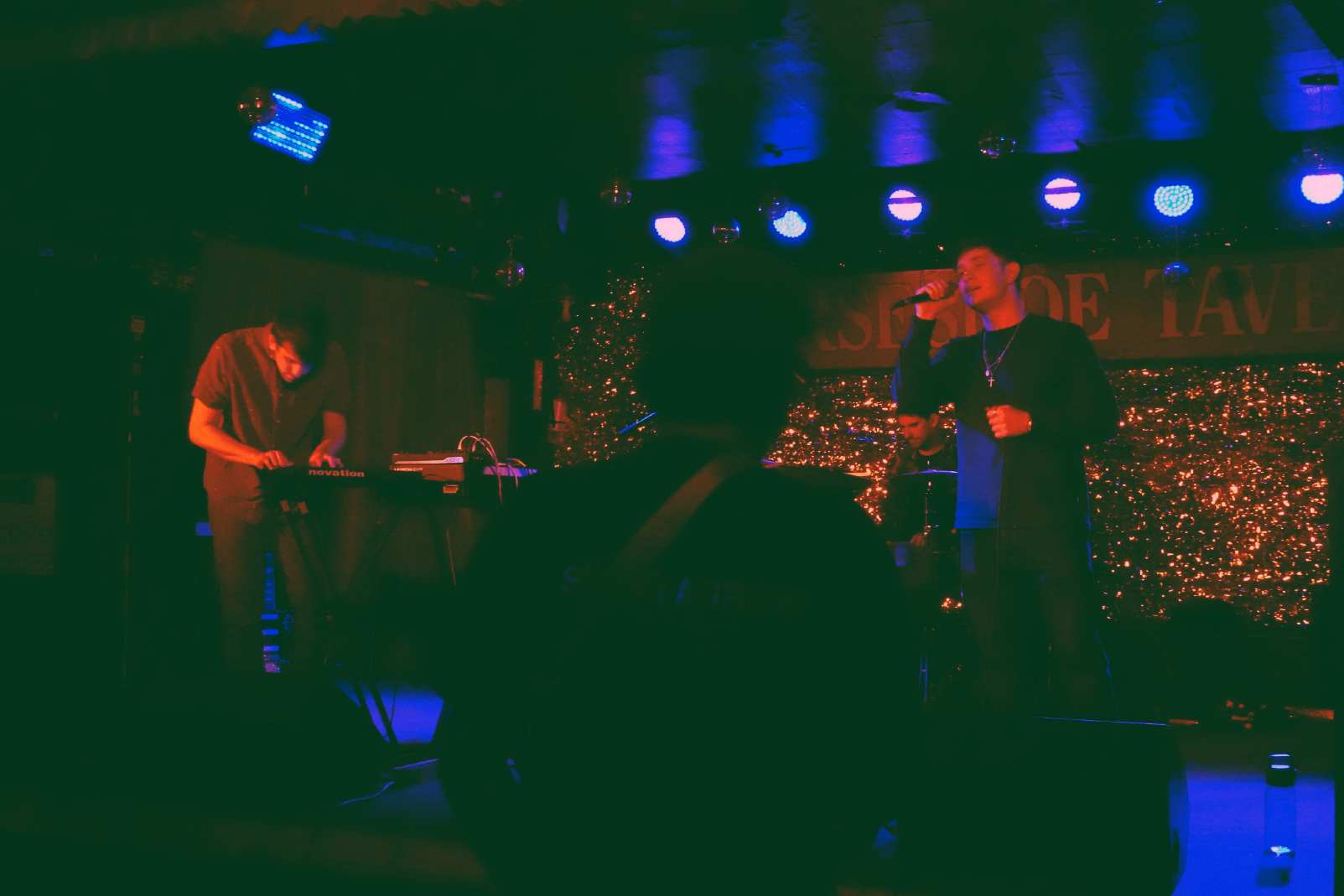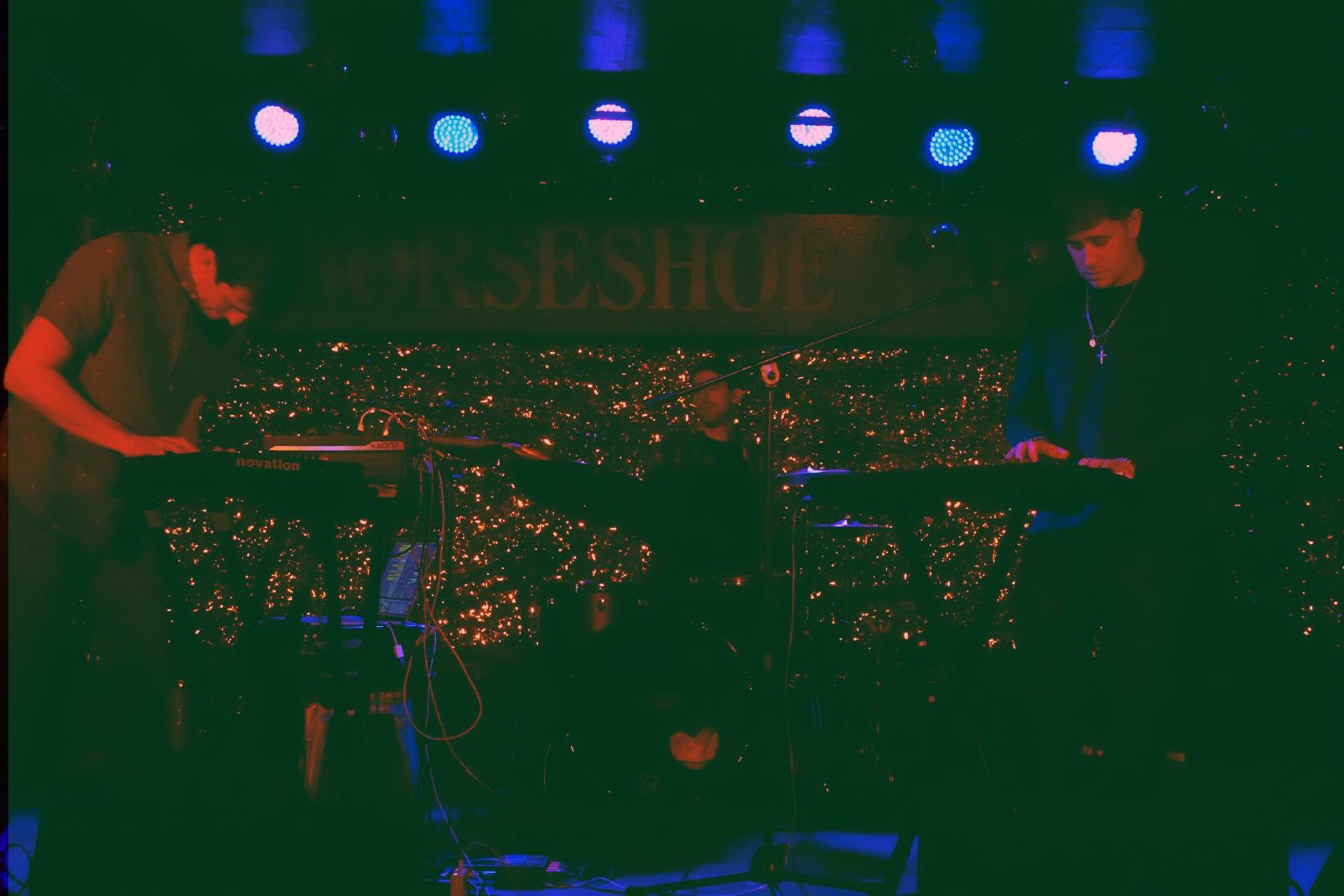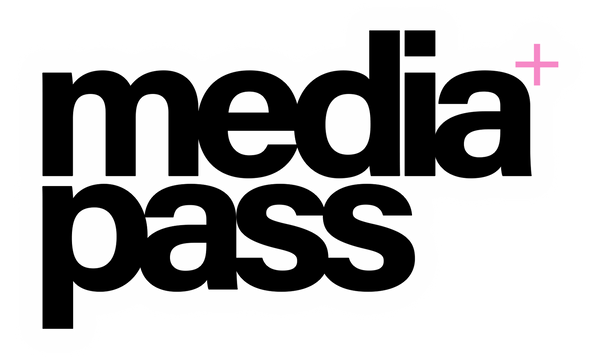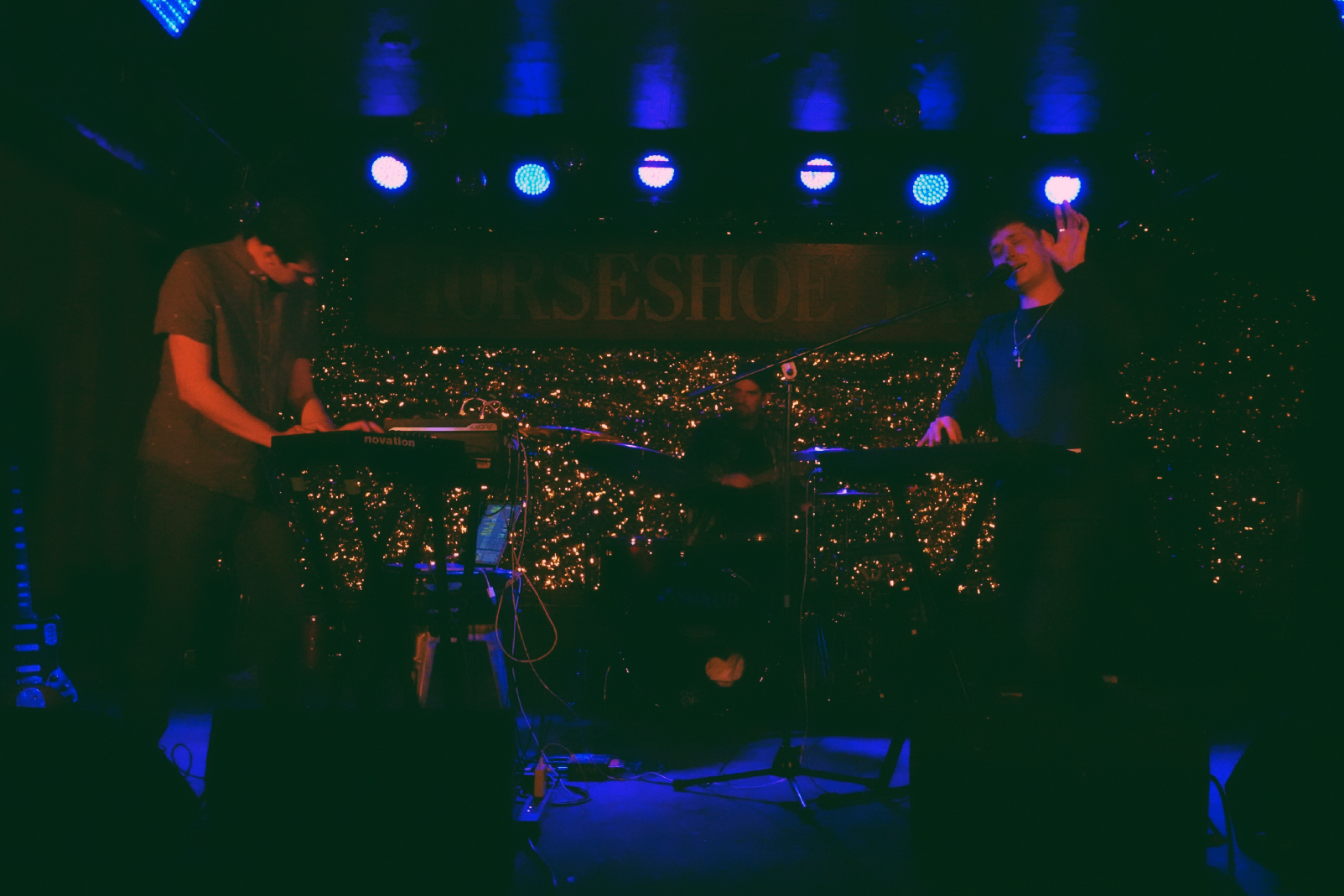
A Conversation with Raveen
Written and photographed by Imani Busby
In an exclusive interview, we caught up with Eric Seguin, the lead singer of Raveen to dive into the creative journey behind their highly anticipated upcoming album. With a fresh sound and introspective lyrics, this album promises to push musical boundaries while capturing the essence of their unique style. Join us as we explore the inspirations, challenges, and exciting new directions that Raveen is taking in their latest project.
Could you please tell us a bit about the journey that led to the forming of Raveen and what inspired you to pursue music as a band?
Yeah, absolutely. So I've been playing guitar and singing since I was seven. And then I got a piano for my 16th birthday, which was a cool gift, and I started learning that. I got into recording myself when I was, like, 13/14. Then I ended up doing the electroacoustics program at Concordia. While I was doing that, I had some friends that were in a band called ‘Alabama’ spelled with Vs instead of a's. Super weird. But that was Stokely's band (Stokely's in Raveen with me). He does all kinds of different things, but he plays bass through a bunch of pedals and stuff, and that helps us make all the sounds we make. And so, yeah, we were playing shows together in different bands. One night we went to a Mount Kimbie concert, and we came home and we just put all of our equipment in one room - we were pretty inspired by the show. So that was kind of the beginning of things.
Yeah, I think we started it initially because we just felt like we were seeing a lot of bands trying to push the limits of what they could do, live with electronics and laptops and still make it feel alive, you know, and still include instruments and drums.
How do the members of Ravine collaborate in creating music? Like, what roles do each of you play in the songwriting and production process?
Usually, I write the first minute of a song. I'll usually write one verse, one chorus, maybe an intro. I've got a background in recording and production, so it's pretty easy for me to get a demo together pretty quickly. I play enough instruments that I'll usually just have all the instruments kind of demoed out for, like, a minute. But then I kind of, you know, ADHD will take over, and I'll lose track of all the 1 minute demos I have. Then I'll usually bring them to the guys in a room, and once we're in a room together, that's usually when the demos start to flesh out into full songs.
I feel like you can kind of hear that if you give the music a listen. A lot of our songs start real, like, quiet and sparse, and then they end with these kind of big, glorious endings, you know? And that's, we always joke, the classic Raveen format.
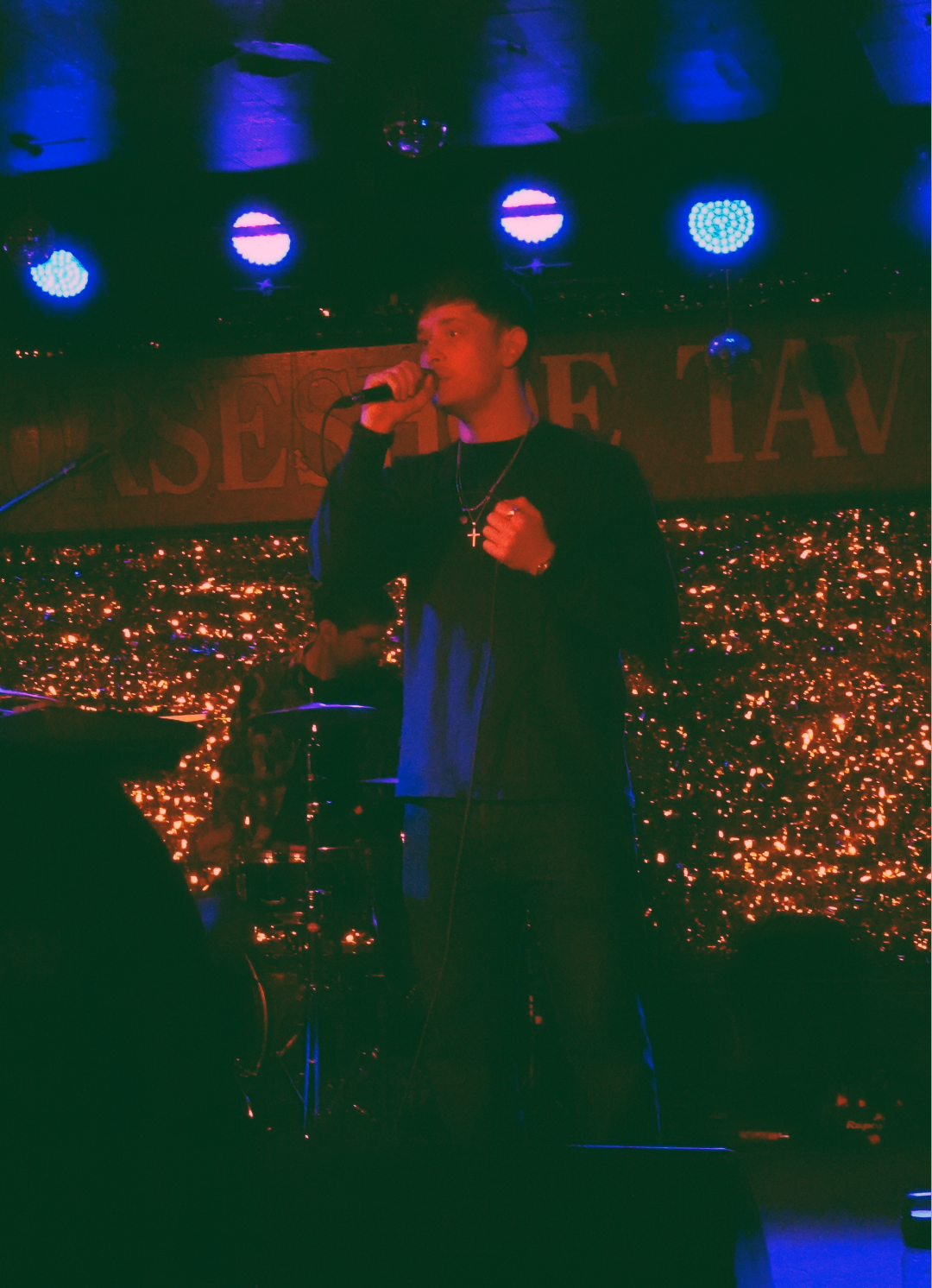
You've been compared to James Blake and Bon Iver, who would you say are some of your biggest musical influences? How have they helped to shape your sound as a band?
Yeah, that's funny. The James Blake one, we get all the time. And Bon Iver I get, too, you know, because I think that was one of the big inspirations behind trying to figure out a way to play really, like, multi layered music on stage. And if you've ever seen his stage show from around the same period, like, 2013, 2014, he was doing the same thing. And I think the funny thing with James Blake is that him and I both kind of came from the same starting place. We were two kind of sad singer songwriters that were listening to a lot of Nick Drake and and a lot of Joni Mitchell, but we loved electronic music, and that just so happens to be, like, the icon. I actually met him.
You met James Blake?
Yeah, yeah. Like, very early on, like, before I even started Raveen, I met him outside of one of his shows, and we talked for a while. And, it's funny because, the voice that I have comes from sitting and playing Nick Drake covers in my room, you know, in high school and university. And that's what I was trying to imitate, and I think he was, too. So we both kind of were imitating the same type of thing.
As a Canadian, I grew up with tons of Joni Mitchell playing. I'm, like, obsessed with her. I think she's the best songwriter of all time. So that influence bleeds through both of our sounds, for sure. As the songwriter in the band, man, when I hear Nick Drake or Joni Mitchell or those real, like, true singer songwriters, that does a lot for me.
At the same time, I mean, like, when it comes to production, you know, it's a completely different world of people. Like Burial and Caribou and even Giant Claw - you know, electronic composers that just take all that singer songwriter approach and jumble it all up.
As you prepare for the release of your upcoming album, "Forever", what can fans expect in terms of sounds and themes and what inspired you to explore those themes?
It's been, like, years since we put out “Always”, which is our first. We put it out in 2017, and a lot of those tracks were really early attempts to blend my songwriting with electronics and the boys' input and stuff like that. This time, a lot of these tracks came from people attending our shows. We've been touring a little bit and playing more and picking out, like, oh, I really like this song, or, oh, I really like that one. That's really what informed, like, which song ended up in the cut and which ones we fleshed out.
Not to disparage the first record, but the string players and the orchestral elements on this record, are just another level. Austin Tufts from Braids is producing on this one. He really, like, thinks in terms of rhythm because he's a drummer. I think he brought a lot more dynamism to this record in terms of, like, this song might hit hard, you know, for a while, and it might really, cut through and be a little bit grittier.
I just feel like we kind of embraced that approach to taking the whole palette, putting it on its record.
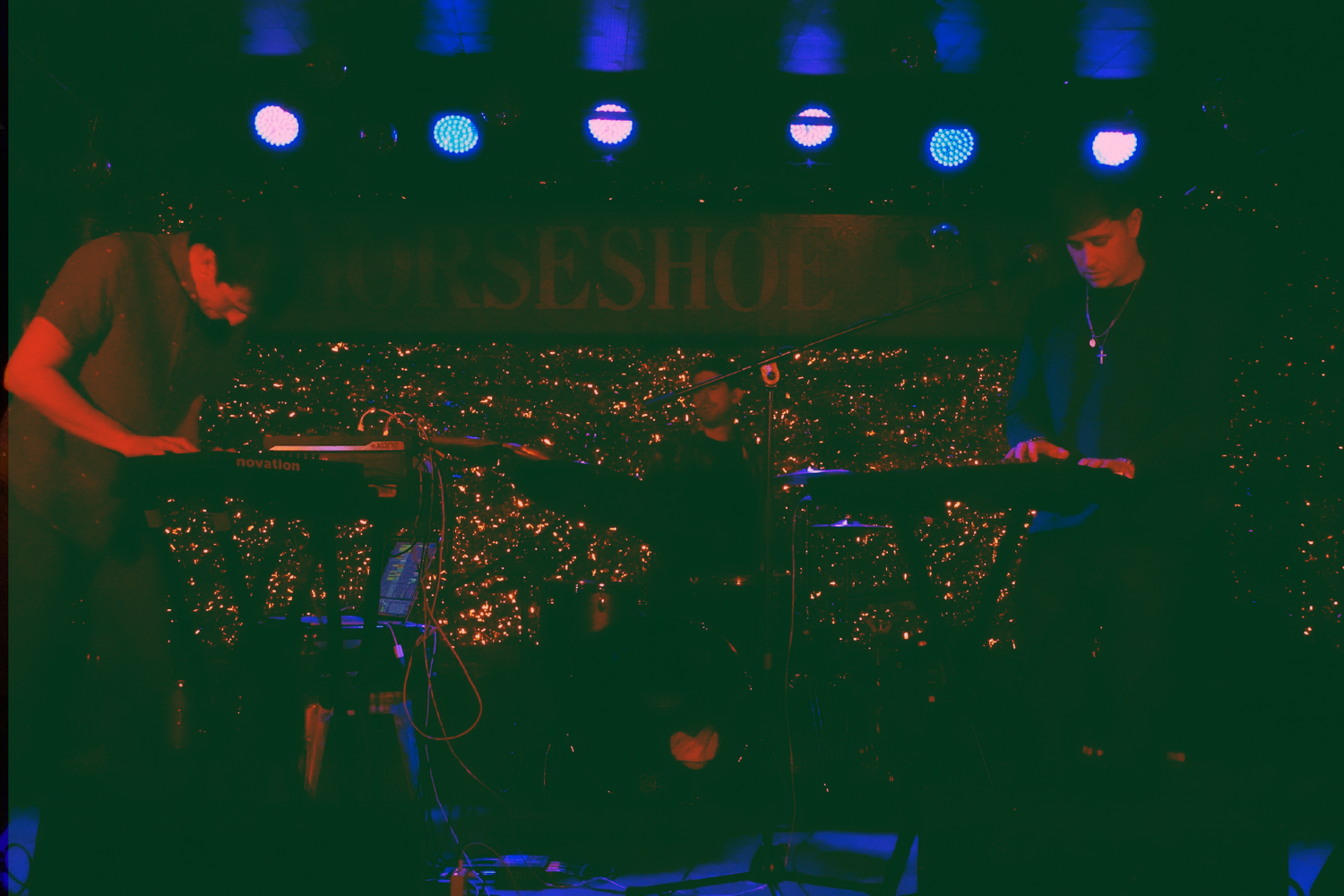
What experience do you hope that your audience has while listening to the album.
I hope they see themselves in it. I've been thinking about this record, obviously, because we're about to put it out lately, and what it means to me and other people. A lot of music right now, from a texture perspective or a musical perspective is, pushing boundaries. Getting people to sit and have music force them to introspect and ask themselves tough questions about themselves like that - I'm not hearing as much of it out there as I wish I was. And I'm hoping, like, that's what this record can do for people. I hope Raveen is that music that people play on a long drive and, you know, getting their feels, but getting their thoughts, too, and, you know, getting their spirit.
I had two favorite songs on the album. My first favorite one was “In The Middle and then my second one was “At My Best”.
I would love to learn more about those songs and the lyrics.
Well, as the songwriter, I don't want to psychoanalyze you, but I think you might be a romantic. Those are the two biggest. Tough ones of heavy, heavy stuff that happens in love. At my best was written a long time ago in a relationship where I felt like I was having a I was really trying hard to show up as my best self. And it was exhausting. At the time I'd been going through a period of addiction and mental health struggles. You're trying to pick yourself up out of that, but also, maybe for the first time, using love as your inspiration to kind of pull yourself out of it - which is tricky, I wouldn't advise it. It's not always the best motivation, but it's a beautiful thing, too. So I wrote that song kind of in that space of trying to pull myself up for someone else. And the song was me expressing, pretty clearly, I was exhausted from trying.
I wrote “In The Middle” at a really interesting time. I'd been kind of coming out of that previous relationship and ending up meeting people that I knew were really special in their own way, but just not being able to, like, give them what I wanted to. And I'd also seen people do the same thing to me. I think I was coming to terms with both perspectives.
It's from my perspective, but also from the perspective ofpeople that have tried to love me. And it's tough, when you know that you're still in the process of “becoming”. Letting somebody get attached to whatever version of you you are now is scary. You want to push them away, but you also admire them. You need intimacy and connection. So there's people around you that you want to connect with, but you kind of know that the person you are today won't be there tomorrow.
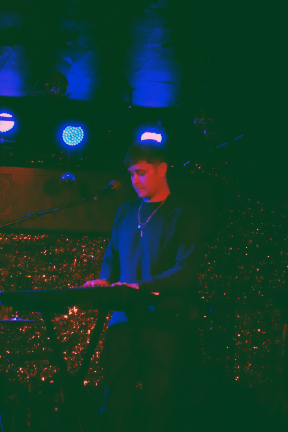
How do you describe a Raveen concert?
The best way I can describe a Raveen show is we like to connect, and we connect with each other and the audience. And I think, like, we, you know, we try to bring people along the ride for the peaks and valleys, you know, emotions as well as volume. There's a lot of loud, a lot of quiet, a lot of, you know, joyous and jubilant and a lot of sadness. We try to bring that drama out of the tunes when we play them together. But, yeah, also, a lot of people will come to the shows and say, oh, man, I didn't expect it to sound so much like the record. We really aim to do that, to bring the recorded stuff to life live and, like, honor those recordings. Stokely, especially, puts in a lot of work into, like, making the live versions of the tracks respect the recorded versions. Yeah. So I hope people get a chance to see that.
After a decade of making music together, how do you think that your collective experience have shaped Ravine's identity as a band?
I think having fun has kept us together. You know, we make some pretty serious music, but we like to joke around and hang out outside of that. I think that's kept us doing it for a long time. I just genuinely, really like and respect Peter and Stokely, and I think that is what keeps us coming back and doing it.
What lessons have you learned along the way, and where do you hope to go next?
Yeah, the lessons we've learned along the way. Dang, so many. I'd say if you know you're doing something special, don't be afraid to tell people, you know? I think we've been doing something really special. I think Stokely does something very special. I think Pete, incredible drummer, and collectively, I think the three of us have something that stands out. We're all kind of, like, humble guys, so we don't always talk about it. But I think how, as we're getting older, maybe just sort of letting those slip away has been a great part of the experience and the lesson that we've learned. I think the music is special and worth hearing.
In terms of the future, who knows, man? You know, we're gonna keep going. It's like if you do something well and you think that there's something out there that's not being done, you kind of have an obligation to do it. As long as that's true, I'm gonna keep doing it. We're gonna keep doing it.
What a wonderful note to end off on.
